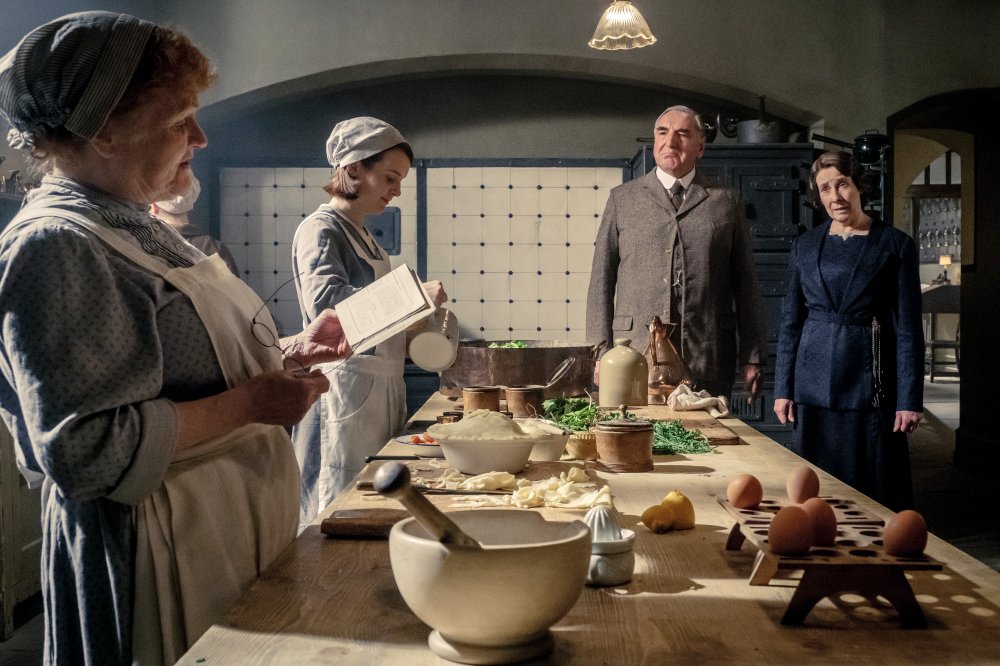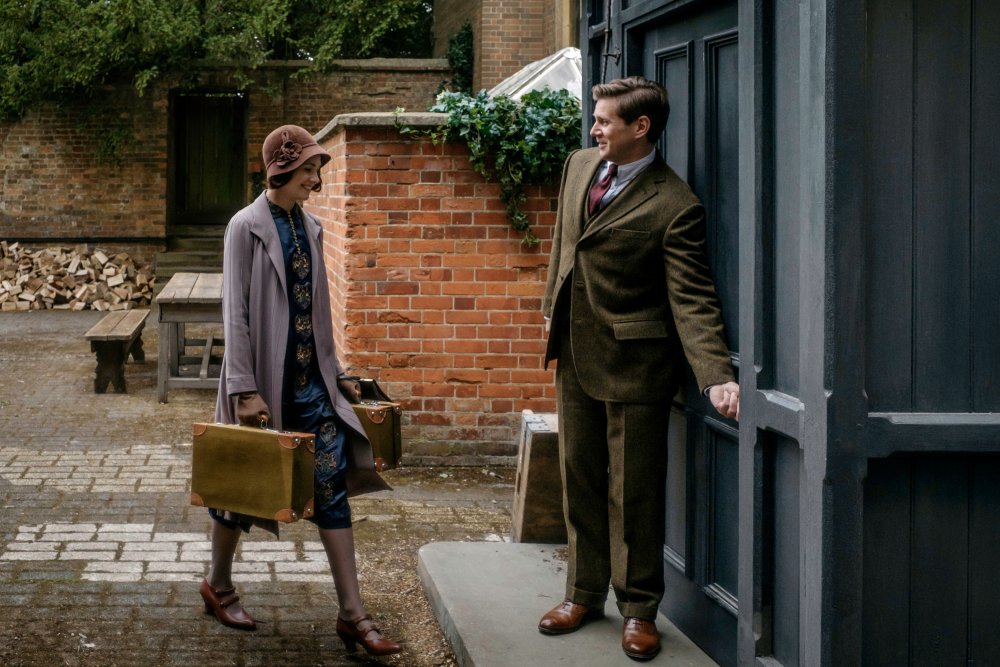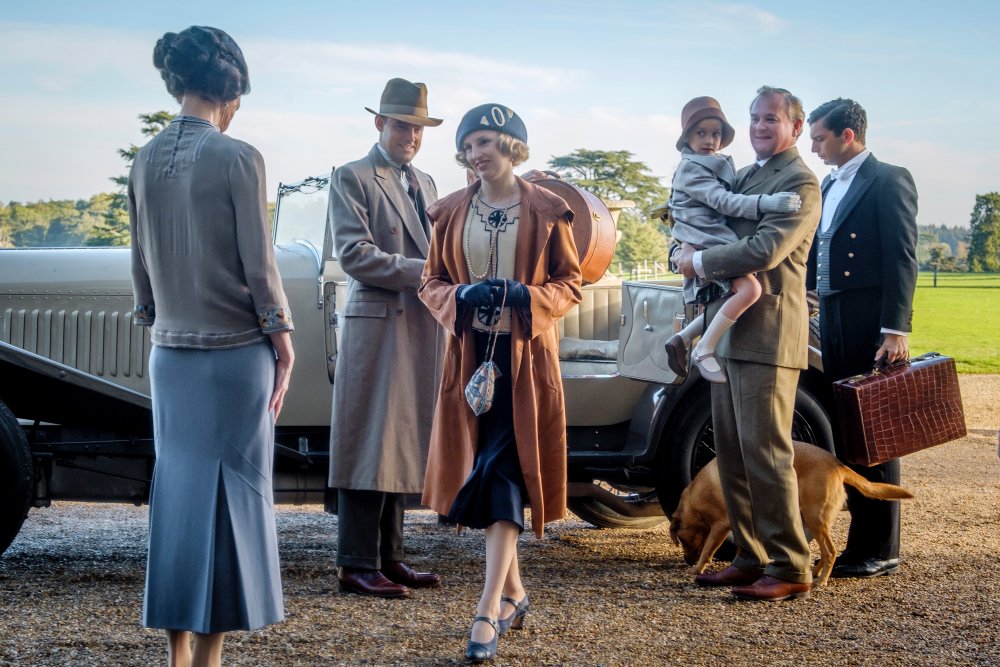Anyone seeking potent big-screen analgesia in these troubled times need look no further than the cosy, highly crafted escapism of the Downton Abbey movie. Creator Julian Fellowes’s ITV period melodrama provided a similarly comforting, nostalgic distraction from the Great Recession during its wildly successful 2010-15 run. The historian Simon Schama may have damned it as a “steaming, silvered tureen of snobbery”, but the aristo-soap antics of the Earl of Grantham’s family and servants built a vast and loyal international following.
UK 2019
Certificate PG 122m 16s
Director Michael Engler
Cast
Henry Talbot Matthew Goode
Violet Crawley, Dowager Countess of Grantham Maggie Smith
Lady Mary Crawley Michelle Dockery
Lucy Tuppence Middleton
Cora Crawley, Countess of Grantham Elizabeth McGovern
Tom Branson Allen Leech
Anna Bates Joanne Froggatt
Lady Edith Crawley Laura Carmichael
Mary, Princess Royal Kate Phillips
Lady Bagshaw Imelda Staunton
Phyllis Baxter Raquel Cassidy
Daisy Mason Sophie McShera
Thomas Barrow Robert James-Collier
Mrs. Hughes Phyllis Logan
Robert Crawley, Earl of Grantham Hugh Bonneville
UK release date 13 September 2019
Distributor Universal Releasing UK
universalpictures.co.uk/micro/downton-abbey
► Trailer
So, unsurprisingly, this theatrical sequel forms a suitably sumptuous capper to the TV series, free of the cynicism and class-conflict of Fellowes’s Oscar-winning country-house caper Gosford Park (2001). It’s more of a supersized TV special than a standalone feature, its carefully contained tale – of a royal visit roiled by staff unrest and a family feud – is designed to tweak rather than supplant previous storylines.
Fellowes’s self-assured script, following soon after the show’s 1926 finale, opts for a spread of TV-style subplots doled out across the film’s large ensemble cast. Layered like a trifle, these low-stakes stories cram in a disputed minor inheritance, a Downton servants revolt against haughty royal staff, plumbing disasters and a mystery pilferer. But it’s all thin stuff, seeming even thinner when stretched over a big screen, handsomely mounted settings and a two-hour span. Even the one hint of real jeopardy, a threat to King George V, is sketched and despatched with unseemly haste. Where’s the meaty melodrama that sustained six series of star-crossed and class-crossed romances, sudden deaths, secret children and battalions of blackmailers?

Lesley Nicol as Mrs. Patmore, Sophie McShera as Daisy Mason, Jim Carter as Charles Carson and Phyllis Logan as Mrs. Hughes
Banished, in favour of the importance of ‘the done thing’, the demanding protocol and pomp of a royal visit providing a testing challenge for Downton to shine as a united household. Director Michael Engler’s voluptuous visuals linger on the sunlit pageantry of a Yorkshire Fusiliers parade, Highclere Castle’s lush landscapes and glowing interiors buffed to a high shine by an army of servants giddy with royalist fervour (republicanism gets a cautious below-stairs mention). A stately, glistening spectacle of pre-war grandeur, lit up by Anna Robbins’s glittering flapper dresses, the film eschews the rocky ruling-class predicament of the 1920s in favour of arch nods at history. “My maid was rather curt with me – but she’s a communist at heart” is Violet, Dowager Countess Grantham’s take on the general strike.
There’s no shortage of zingers from Maggie Smith, Downton’s MVP, feuding with Imelda Staunton’s stern Lady Bagshaw in a clash of the tiara-wearing titans that is fun if flagrant fan service. Hugh Bonneville and other series stalwarts make the best of sparse plot rations with easy, confident playing, with only David Haig’s smilingly poisonous royal butler registering among the newcomers.

Tuppence Middleston as Lucy and Allen Leech as Tom Branson
Themes of hallowed tradition versus necessary progress are teased out in the trademark Downton mix of social liberalism and one-nation Tory paternalism, allowing for the heartwarming if anachronistic acceptance of an illegitimate child and a gay storyline for lonely butler Barrow. But maid Anna’s stirring defence of ‘noblesse oblige’ – dismissing Lady Mary’s weary thoughts of selling the house because “Downton is the heart of this community” – is designed to reassure the viewer as much as the chatelaine.
A wallow in the lavish living and moral certainties of Downton’s shiny imagined past, Fellowes and Engler’s film creates a vision of a politically and socially secure Great Britain that has rarely seemed further out of reach.
-
The Digital Edition and Archive quick link
Log in here to your digital edition and archive subscription, take a look at the packages on offer and buy a subscription.





